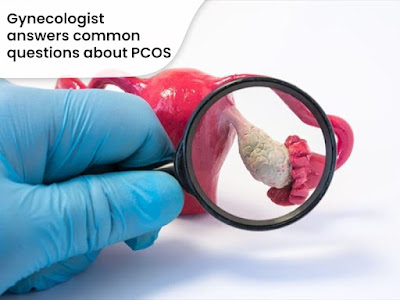What is PCOS?
Polycystic Ovary Syndrome, as a condition, is characterized by irregular periods, excess levels of androgens in the body, and the presence of small cysts on the ovaries. These cysts are not harmful but can lead to hormone imbalances, causing a variety of symptoms.
What are the common signs and symptoms of PCOS?
According to the best gynecologist doctors in Mukundapur, the symptoms of PCOS can vary from person to person, but they typically include:
Irregular menstrual cycles or missed periods
Excess hair growth in different areas of the body
Acne and oily skin
Weight gain or difficulty losing weight
Thinning hair on the scalp
Darkening of the skin, particularly along neck creases, in the groin, and underneath breasts
Difficulty getting pregnant
Fatigue
How is PCOS diagnosed?
PCOS is diagnosed through a combination of medical history, physical examination, and certain tests. Your gynecologist will likely inquire about your menstrual cycles, symptoms you've been experiencing, and any family history of hormonal disorders. A pelvic exam may be performed, and blood tests will be conducted to measure hormone levels, such as testosterone and insulin. An ultrasound may also be done to examine the ovaries for cysts.
What causes PCOS?
The exact cause of PCOS is unknown, but several factors are believed to play a role. These include insulin resistance, low-grade inflammation, and hereditary factors. Insulin resistance can result in high insulin levels, which stimulate the ovaries to produce more androgens. Obesity can exacerbate insulin resistance, making weight management an important aspect of PCOS treatment.
Can PCOS affect fertility?
Yes, PCOS can indeed affect fertility. The hormonal imbalances in PCOS can prevent ovulation, which is necessary for pregnancy. Additionally, the high levels of insulin associated with PCOS might cause the body to produce more androgens, further disrupting ovulation. If you're trying to conceive and suspect you have PCOS, it's crucial to consult a gynecologist for appropriate evaluation and guidance.
Is there a cure for PCOS?
PCOS symptoms can be managed effectively through lifestyle changes and medical treatment. Lifestyle modifications like a healthy diet, regular exercise, and weight management are often the first line of defence. Medical treatments may include hormonal birth control to regulate menstrual cycles, medications to manage insulin levels, and fertility treatments for those trying to conceive.
How does diet and exercise help manage PCOS?
A healthy diet with regular exercise is a key component of managing PCOS. A well-balanced diet can help regulate insulin levels and aid in weight management, which is crucial for women with PCOS. Physical activity improves insulin sensitivity and can assist in maintaining a healthy weight, potentially reducing the severity of symptoms like irregular periods and excessive hair growth.
Can PCOS be managed during pregnancy?
PCOS can present unique challenges during pregnancy, including a risk of gestational diabetes, preeclampsia, and pre-term birth. However, with careful monitoring and management by a healthcare team, most women with PCOS have healthy pregnancies and deliver healthy babies. A tailored approach to prenatal care, including monitoring blood sugar levels, is essential for a successful pregnancy with PCOS.
Understanding the signs and symptoms of PCOS is crucial for individuals dealing with this condition. Consulting the gynecologists is the first step toward effective management and improved quality of life.
.jpg)


.jpg)




%20(1).jpg)






%20(1).jpg)
